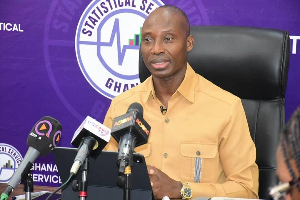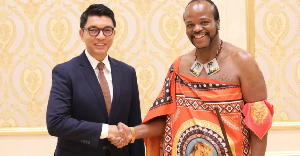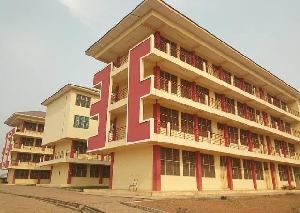Political parties have been urged to demonstrate real commitment to ensuring increased participation of women in decision-making processes at the local and national levels.
Mr Alhassan Awal, Director of Northern Sector Action and Awareness Center (NORSAAC), a social development NGO, who made the call, said increasing the participation of women in decision-making processes would ensure effective democratic practice in the country.
Mr Awal was speaking on Thursday at a stakeholders’ forum in Tamale.
The event was organized by the Ghana Developing Communities Association (GDCA), an NGO, and it created the forum to deliberate on challenges and lessons learnt during the implementation of the Support for Women in Public Elections (SWOPE) project.
The GDCA with support from the European Union, in 2010, began implementing SWOPE in six districts including Central Gonja, Nanumba North and the Tamale Metropolis, to strengthen and enhance women’s participation and representation in governance at the local and national levels.
The stakeholders’ forum, which was attended by members from civil society organizations, NGOs, political parties and some assembly members, was also meant to mark the conclusion of the SWOPE project.
Mr Awal said the current system where the majority of the population was marginalized in major decision-making levels and representation in governance processes, amounted to suppressing valuable voices and contributions that could aid the country’s development.
He said while in 2006, the number of women elected as assembly members in the Northern Region stood at 38; in 2010, the figure dropped to 21.
He, therefore, called for the strengthening of the capacity of civil society groups working on women issues to enable them to better champion their (women) cause.
He also called for the demystifying of cultural and traditional structures that hindered the participation of women in politics to enable them participate in major decision-making processes.
Madam Saratu Mahama, Northern Ghana Programmes Coordinator of the International Federation of Women Lawyers (FIDA), said the lack of political will by political parties to implement the affirmative action contained in their manifestoes was amongst the reasons for the marginalization of women.
She called on government to fully implement the country’s laws and international conventions to give voice to women.
Mr Benedict Yiyugsah, Research Officer at the Tamale Office of the Ghana Center for Democratic Development (CDD-Ghana), said CDD-Ghana was lobbying the District Development Fund Secretariat to make allocations to districts based on the number of women representation in the assemblies.
Mr Yiyugsah expressed the hope that this would lead to increased appointment of women into the district assemblies.
Madam Faidatu Alhassan, Project Officer at GDCA in-charge of SWOPE, said despite the efforts made, “the status quo still remains, prejudice still holds; women face financial difficulties when it comes to campaigning” and hence the low representations at local and national levels.
Regional News of Friday, 27 September 2013
Source: GNA












